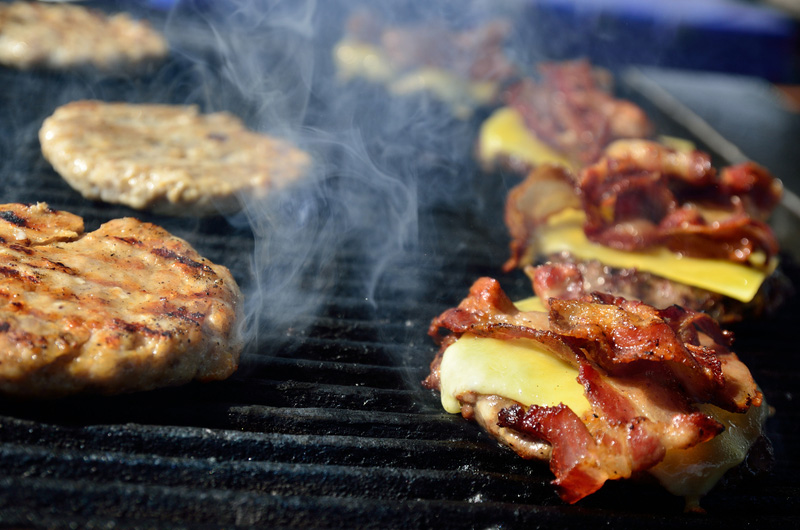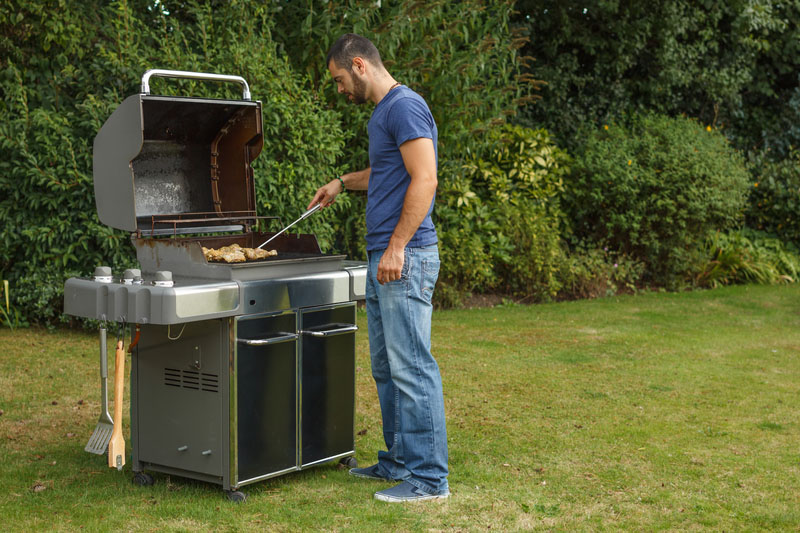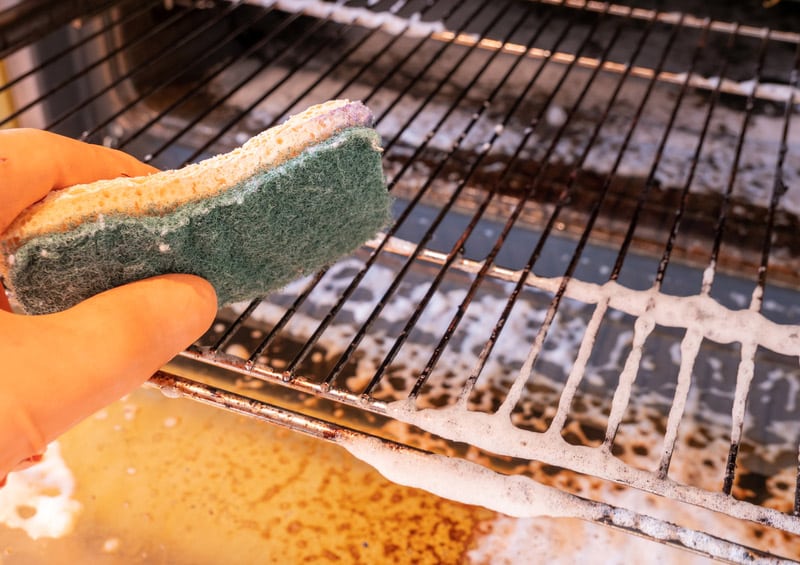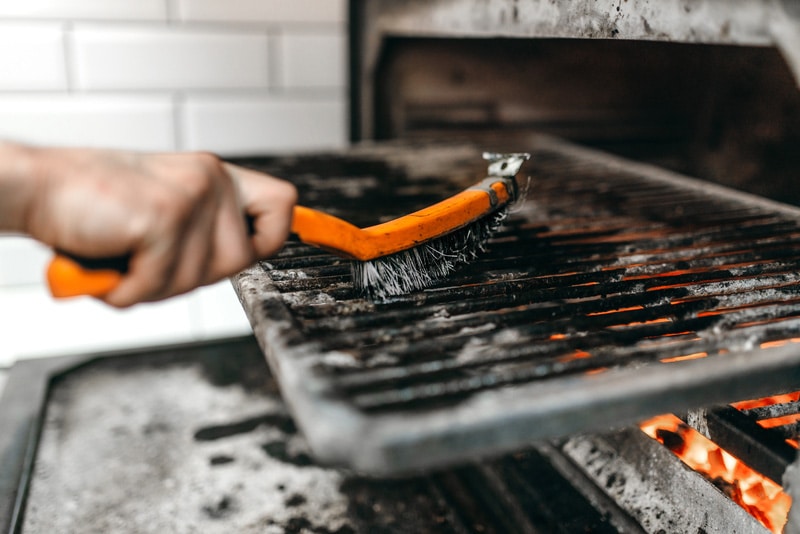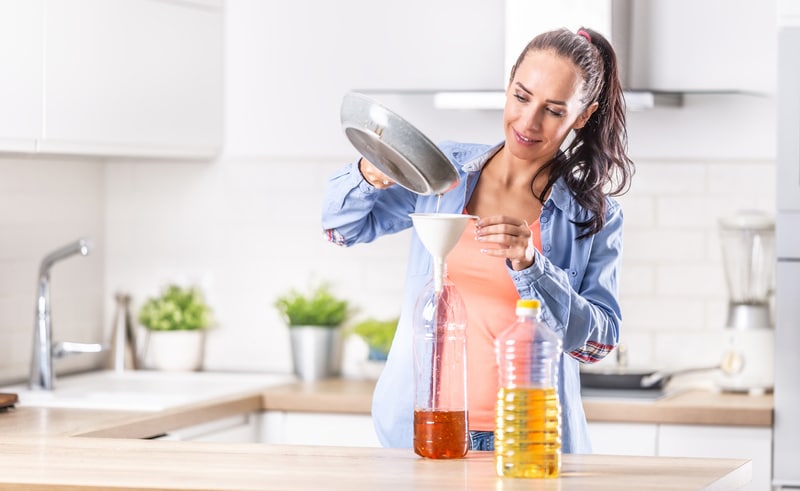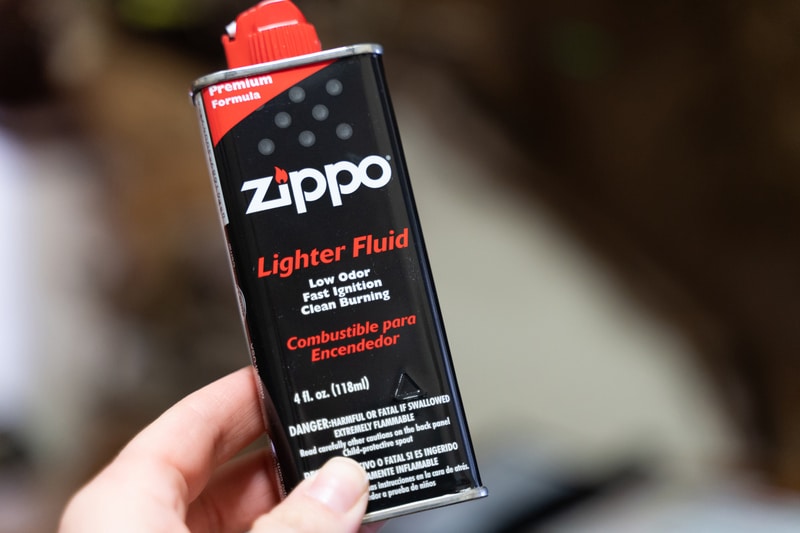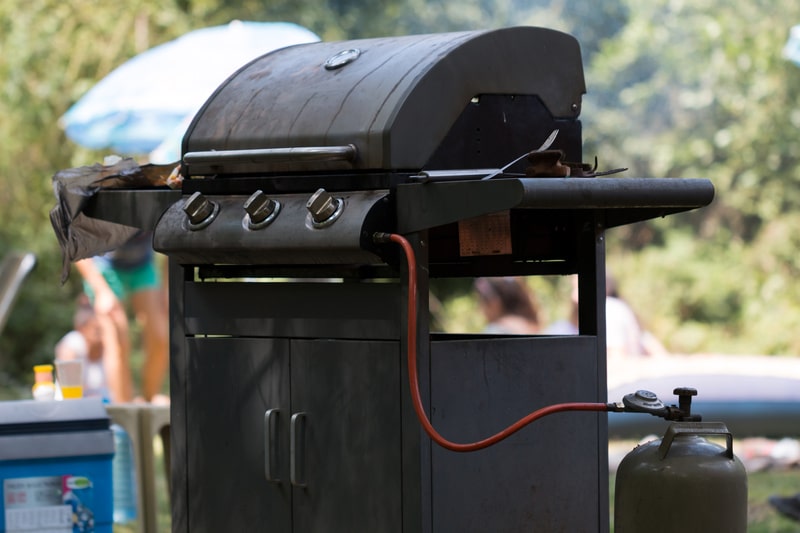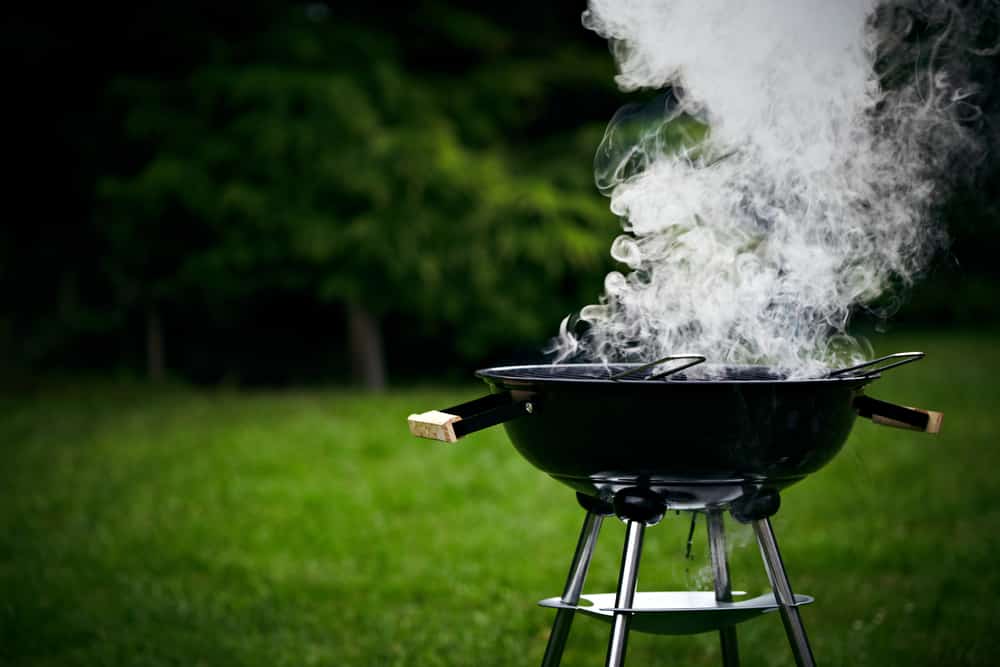
The grills have become important cooking equipment, especially for people who like grilled food. The grills are extremely easy to use but many people complain about excessive smoke.
Why Does My Grill Smoke So Much?
In most cases, the smoke is caused by built-up grease but there are various other reasons. So, if you are a grill user, let’s check out the common causes of smoking and how you can get rid of it!
- Excessive Grease Buildup
If you use the grill regularly, the grease builds up in the grill and can result in smoke. That’s because when the greased grills are heated, the grime is burnt, which fills the grill chamber with smoke.
The grease builds up because of drippings from oily and fatty food, such as meat. If the grease is not cleaned for a long time, it will actually result in thick smoke.
The solution is to clean the grill and wash away the grease. Some of the grease-cleaning instructions include:
- First of all, you have to purchase the grill scraper and brush. It has a double-sided head that helps remove food debris, grime, and grease. In addition, the brush can be used with cleaning solvents. However, make sure you purchase the rounded brush to prevent bristles from falling off.
- When the grill cools down, wipe out the grease with the help of paper towels – it will ensure that the grease doesn’t get sticky.
- Then, take out the grill grates and soak the grates in soap and water solution for an hour. Then, use the scraper and brush to scrub the grates and clean the grease
It is recommended that you clean the grates every three weeks to prevent grease buildup. Also, when you are done cleaning the grates, make sure you dry them to prevent corrosion and rust.
- Insufficient Airflow
The grills are designed with various airflow sources, such as top and side vents. These vents are designed with various holes or have a sliding lid, so you can control the airflow in the grill.
So, if the grill doesn’t have sufficient airflow, the grill will overheat and produce smoke. Secondly, when the grill is damaged, it prevents the grill from getting sufficient oxygen. So, when the fuel isn’t mixed with oxygen when it is sparked, the flame will start producing smoke.
Another reason behind restricted airflow is putting too much food on the grills because it can block the vents and limit the airflow. To fix this issue, you have to open the vents on the grill to ensure sufficient ventilation and airflow.
Keep in mind that if the vents are too open, the flame will keep flickering or the grill won’t light up at all. For this reason, we recommend that you only keep the vents open when cooking low-heat food.
Moreover, you must ensure that the vents aren’t blocked by food (you should space the food strategically).
- Using Bad Cleaning Chemicals
It is essential to clean the grill regularly to prevent grease and grime buildup. However, many people use harsh cleaning chemicals, which results in smoke production as they have toxic chemicals.
In particular, the chemical sprays are trapped inside the grill’s burner, which burn when the grill is turned on. Also, some cleaning chemicals interact with the gas flames, which results in the production of toxic smoke.
The only solution is to change the cleaner and opt for a special grill cleaner.
- Internal Components
If the internal components of the grill are damaged or burnt, it can result in smoke production. In addition to burnt components, the seared paint on the internal side of the grill can also cause this issue.
For this purpose, you must turn off the grill and take off its back cover to access the machinery. You have to inspect all the components and replace the ones with burn marks.
In addition, you must replace the melted wires because they can also cause smoke (you must use a wire gauge to replace the burnt or melted wires).
- Food Scrapes
If you haven’t cleaned the grill in a long time, it’s likely that food scrapes are causing the smoke. The leftover food scrapes can dry up inside the grill, which burns when you turn on the grill, resulting in smoke.
For this reason, you should clean the grill regularly to make sure no food scrapes dry in the grill (you should use a brush with metal bristles to clean the leftover food debris). Secondly, you must clean and scrub the drip trays regularly.
The drip trays catch the oil drippings and food debris but make sure you clean the trays regularly to prevent smoke production. In addition to smoke, the dirty drip tray will be prone to rusting as well.
- Coating
If your new grill is producing smoke, it’s likely that the manufacturer’s coating is burning, resulting in smoke. It’s actually normal for new grills to produce smoke and it will automatically go away when you’ve used the grill three to four times.
- Liquid
Many people don’t consider this but excessive liquid on the grill grates can result in smoke as well. It doesn’t matter if the liquid has dried up from the previous grilling session or grates are wet due to the current session, excessive grease, fats, or oil can lead to smoking.
In addition to smoking, the liquid can result in flare-ups as well, which can be extremely dangerous. So, always clean the grill grates after use and use limited liquid (fats or oil) on the grates.
- Fuel Quality
The fuel source is important for every grill. In most cases, using low-quality fuel will produce smoke as such fuels don’t have a correct fuel-to-oxygen ratio. So, if you have been using low-budget fuel, it’s time to upgrade the fuel and get a steady flame.
On the other hand, if you are already using high-quality fuel, make sure you store it in a garage or shed to keep it away from direct sunlight as sunlight can result in fuel degradation.
Moreover, you should install a hygrometer as it helps prevent humidity. Once you have upgraded the fuel, make sure you replace the fuel connection hoses as well if they are damaged.
- Using Lighter Fluid
If you are using a gas grill, it’s recommended that you give up using the lighter fluids. That’s because the gas grills are designed to produce a steady flame and don’t need extra fuel to produce the flame. With gas grills, you can simply use the flame button to turn on the flame.
In case the grill is not producing the flame, the solution is to get the heating assembly checked and repaired rather than using lighter fluid as it can damage the grill. In particular, the lighter fluid can leave behind grime, which results in smoke.
Also, the lighter fluid can only be used for charcoal grills. In case you have already used the lighter fluid, follow the following steps to clean it:
- Switch off the grill and let it cool down
- Take out the grates and clean them with the help of soap and water solution (you might have to soak them for an hour or two)
- Once the grates are cleaned, put them aside for drying and wipe the grill’s interior with the help of paper towels to remove the lighter fluid. You can also soak the towel in soap and water solution to clean the interior
- When the grill and grates are cleaned and dried up, turn on the grill and use it without any smoke
- Pressure
In case you are using a gas grill, the higher gas pressure can increase the flames, which results in smoke production.
For this reason, we recommend that you check the fuel valve on the grill and reduce the pressure. t will tone down the flames a bit but the smoke will be eliminated as well.
